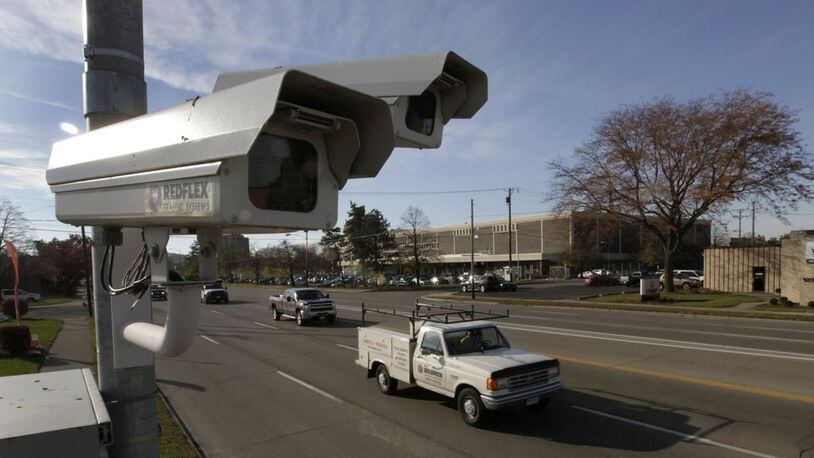Lawsuits brought by motorists against Dayton, West Carrollton and Trotwood were consolidated into one case. Judges at the trial court and 2nd District Court of Appeals found that the civil procedures don’t infringe upon constitutional rights. But courts elsewhere across the state have come to different conclusions.
Traffic camera opponents are now asking the high court to decide the matter.
Ohio Supreme Court spokesman Bret Crowe said the court will likely decide within four to seven months whether to take the case.
Related: Cities can turn red light cameras back on, court rules
Last month, in a split decision, the Ohio Supreme Court ruled that the 2015 state law that makes it all but impossible for cities to use automatic traffic cameras is unconstitutional because it conflicts with cities’ home rule powers. The decision impacts 8 million licensed drivers, delivers cities a big win on home rule powers and gives cities the go-ahead to turn the traffic cameras back on.
Related: 5 things to know about Dayton’s red-light camera case
The Ohio Constitution, adopted in 1912, gives municipalities “home-rule” powers of self-governance as long as local ordinances don’t conflict with the state’s general laws.
Traffic cameras have been used across Ohio since at least 2002. Opponents see the devices as automated speed traps that allow cities to fill their coffers. Supporters view them as a means to improve road safety and free up police resources for other matters.
About the Author
